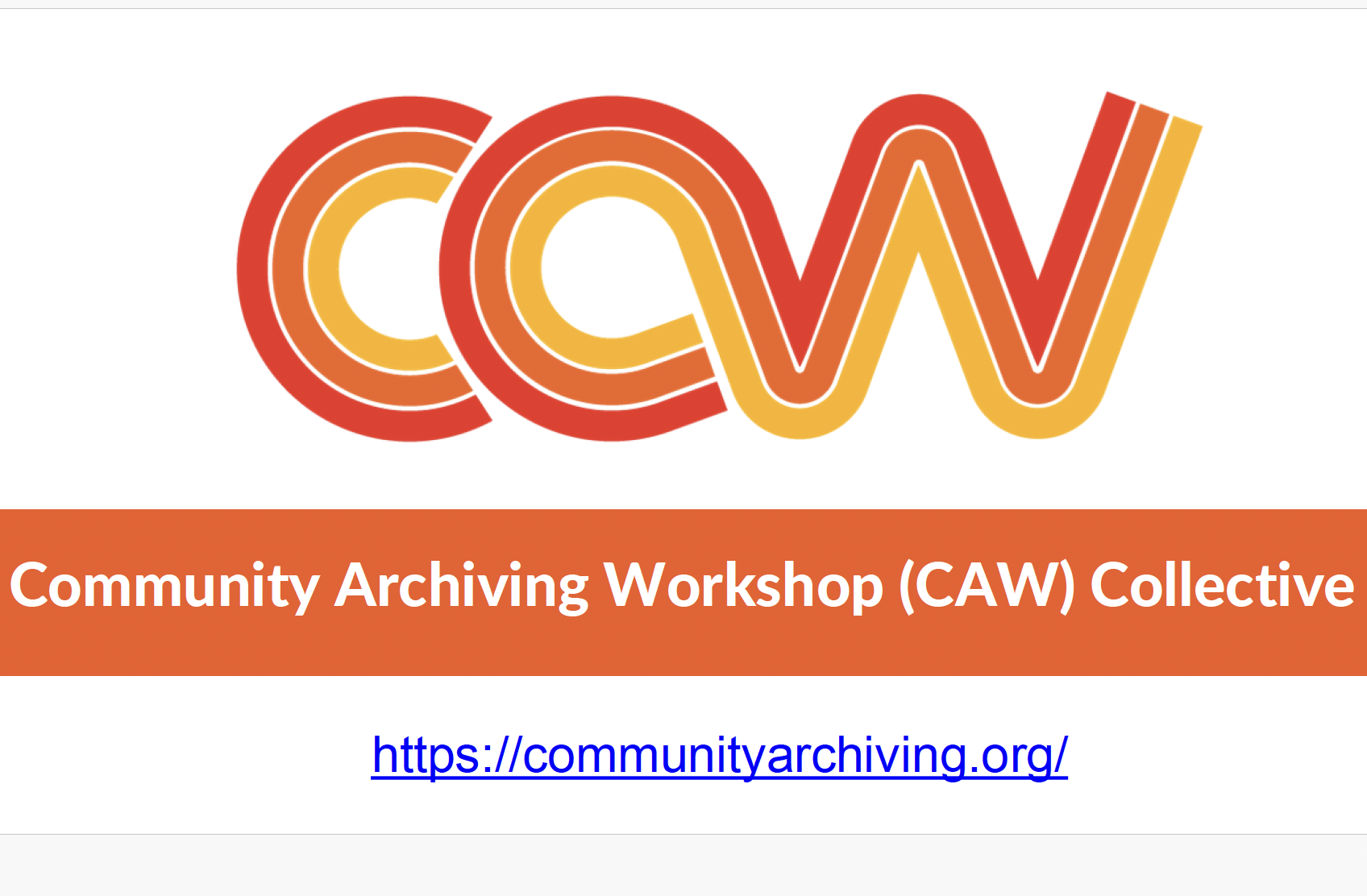
DHPSNY Dialogue | Collections for the Future of New York
Getting Started with Participatory and Community Archiving (May 8)
By co-facilitator Marie Lascu, Dialogue Community Archiving Workshop (CAW) Collective Member
The guiding question of the 2025 DHPSNY Dialogue series is “What can we as practitioners in the field - both paid and volunteer - do to build and steward collections for the communities of tomorrow?” In sharing an overview of our projects centered around participatory and community archiving - Community Archiving Workshop (CAW) and Roadmap for Participatory Archiving (ROPA) - we hope the similarities between our experiences are clear and empowering. Both projects provide documentation with the express purpose of making our community archiving events reproducible. [The development and details of these two models were discussed during the Dialogue, and the speakers explored how they support archivists and cultural organizations in collaborating with community groups and members. Often, this kind of approach to ‘collecting’ can help to ensure that collections reflect the lived experiences and perspectives of those they represent, and that community and participatory archiving projects are based in strong collaborations.]
Wanting to be useful outside of a traditional archival space is what pushed me towards community archiving as a graduate student fifteen years ago. It was essential for me to experience participatory events firsthand to understand what is possible. This holds true both for practitioners who want to engage as well as for the community members you want to engage with. [For archival organizations and archivists,] Planning a one-off event is a manageable gateway step into participatory archiving - you can get a sense of the resources you can wrangle (funding, supplies, spaces, volunteers), and give community members a chance to feel you out and even offer up their own needs and ideas for solutions. Demonstrate what you can offer through an open invitation with no stakes and no quotas. The goal is to begin a conversation. Collaborate on identifying the best way you can assist. Accept when you are not the correct person or institution who can assist. Sometimes you click right away and things move fast, other times it will take months or even years to move forward.
The approaches I’ve engaged in over the years have not always been foolproof, but I can confidently state that practitioners in the field can help support collections for communities current and future through open skill sharing, collaboration, and collective advocacy. Many of us are doing similar work that is replicable and adaptable, and growing our networks will strengthen these efforts. Regional communities of practice are essential. Full stop.
If you attended this event, we'd love to hear your feedback to help improve future programming by completing this survey.
Access the recorded portion of the session.
View or download the slideshow.
Recommended Resources:
Memory Rising
Queens Memory Project
Mid-Atlantic Regional Moving Image Archive (MARMIA)
The Community Curation Program
Digital Diaspora Roadshows
The Gates Preserve
Mukurtu
Indigitization
List of Community/Personal Archiving Projects and Programs
Personal Archiving Organizations Map
The Environmental Impact of Digital Preservation
Diversifying the Digital Historical Record Conference Proceedings
Identifying and Dismantling White Supremacy in Archives Poster
Michelle Caswell's work
Sustainable Futures